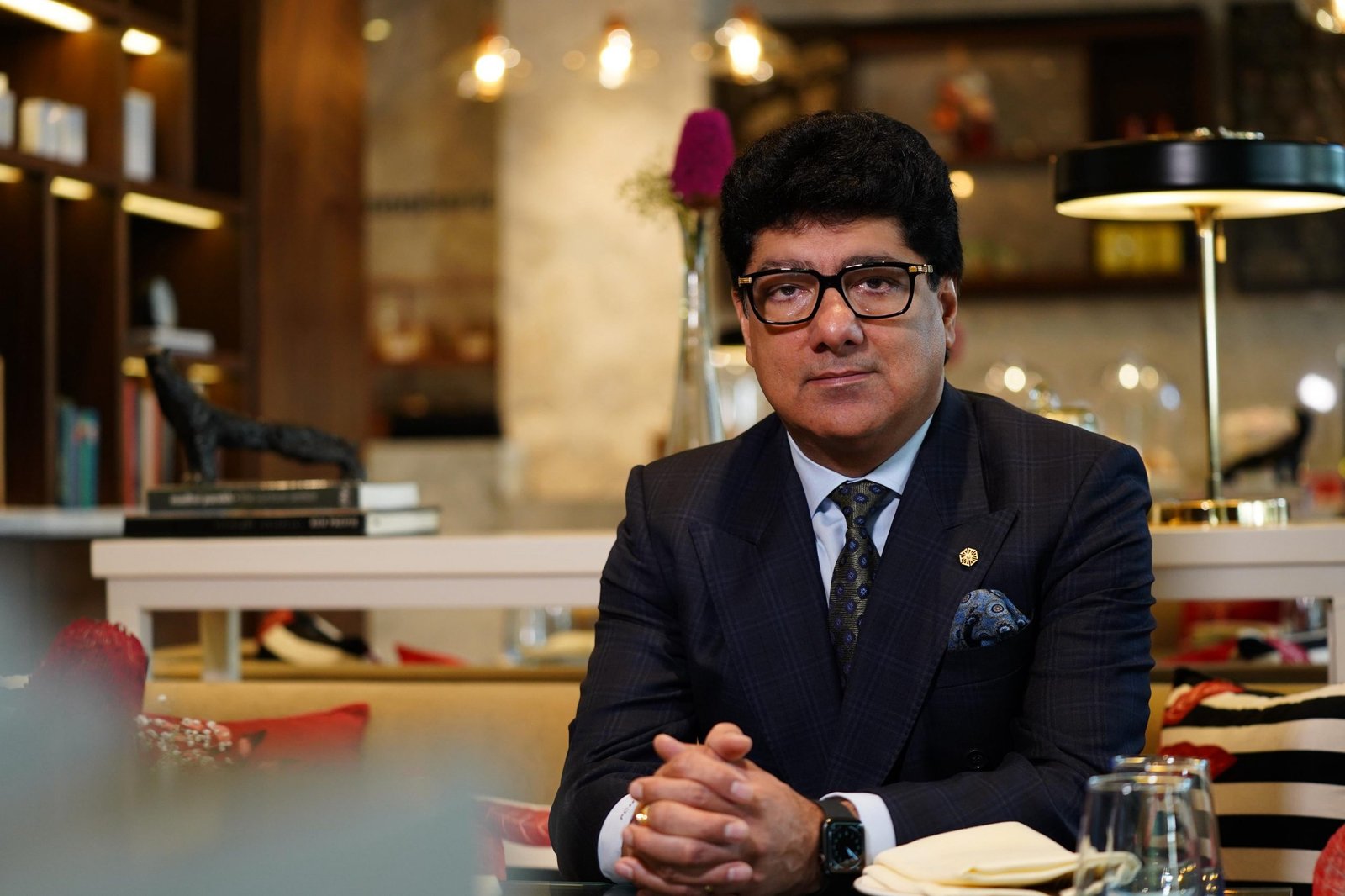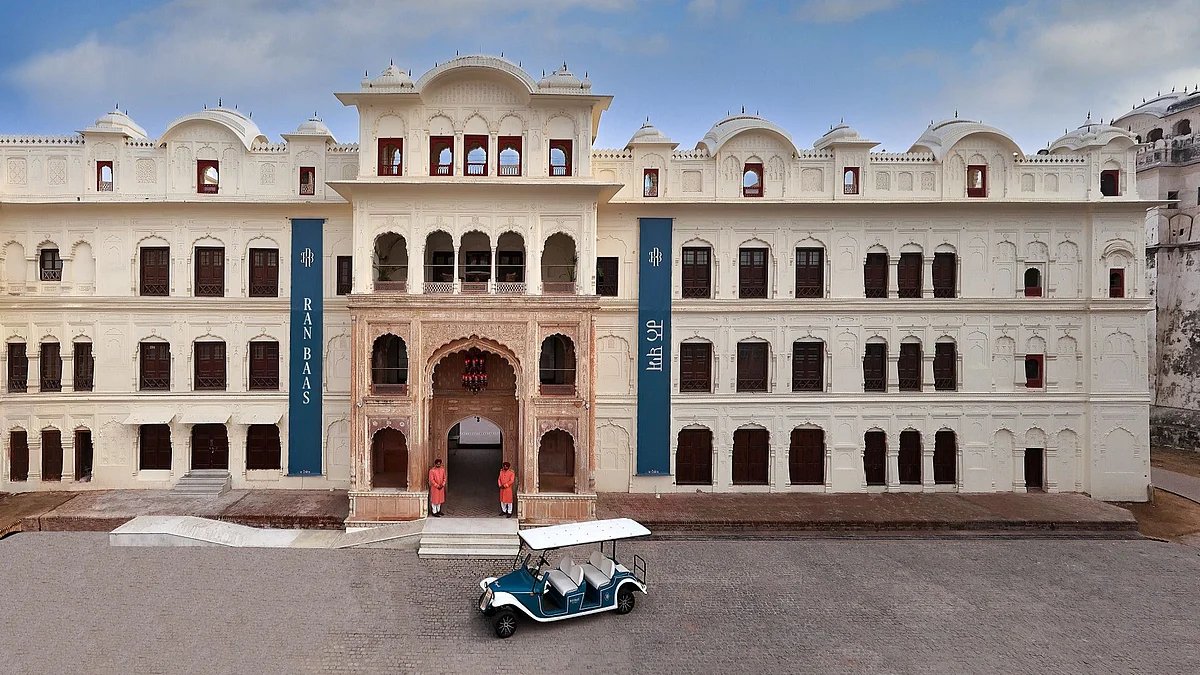Hotels & Accommodations
Morgan Stanley Raises Price Target on Wyndham Hotels & Resorts to $105 From $97, Keeps Overweight Rating

|
Market Closed –
|
5-day change | 1st Jan Change | ||
|
90.59 USD |
-0.45% | +7.59% | -10.12% | |
Published on 07/15/2025 at 07:27
© MT Newswires – 2025
Wyndham Hotels & Resorts, Inc. is a hotel franchising company. The Company operates through one segment: Hotel Franchising. The Hotel Franchising segment consists of licensing its lodging brands and providing related services to third-party hotel owners and others. It also operates a full-service international managed business. The Company operates approximately 9,200 hotels across over 95 countries on six continents. Through its network of approximately 872,000 rooms, it appealing to the everyday traveler. The Company operates a portfolio of 24 hotel brands, including Super 8, Days Inn, Ramada, Microtel, La Quinta, Baymont, Wingate, AmericInn, Hawthorn Suites, Trademark Collection and Wyndham.
Buy
Average target price
103.70USD
Spread / Average Target
+14.47%
Quarterly revenue – Rate of surprise
Select your edition
All financial news and data tailored to specific country editions
Hotels & Accommodations
Is it Airbnb’s fault that Paris hotels are expensive?
France, as one of the world’s top tourist destinations, is struggling with a hotel shortage. A range of factors make it very difficult to build new hotels in large enough quantities, which results in skyrocketing prices and various other problems for travellers. This trend over recent years has coincided with a significant rise in the use of Airbnb. But what is the true connection between those two events?
If Airbnb and similar companies are being targeted by public authorities for contributing to the scarcity of housing on the market, why aren’t hotel chains facing the same level of scrutiny? The answer likely lies in the lobbying power of the hotel industry.
Across the globe, cities are engaged in an ongoing battle against Airbnb and short-term rentals, introducing increasingly restrictive regulations. The common accusation against the platform is that it reduces the availability of housing for residents, prioritizing tourists instead—thereby driving up rents.
While it is understandable that authorities seek to prevent cities like Paris from becoming mere tourist hubs, why restrict short-term rentals while allowing the proliferation of new hotels each year?
While Airbnb and furnished tourist accommodation are in its sights, Paris City Hall is indeed promoting substantial development of the hotel industry. In 2008, it decided to reserve public land in order to build 7,000 rooms as part of a ten-year hotel plan. In the end, 16,300 additional rooms were created, exceeding the initial objective by more than 100%. This phenomenon does not only concern Paris: the growth in the supply of hotel accommodation is often even double or even triple that of the supply of accommodation in the major French cities.
According to the Atelier parisien d’urbanisme (Apur), an association bringing together specialists in urban planning in the capital, between 1994 and 2018, 150 hotels and 21,500 rooms were built in Paris and in the inner suburbs − i.e. 900 new rooms each year. In inner Paris, 77 new hotels and 8,700 rooms were built over the same period. In 2014, the Plaza Athénée, the illustrious Parisian hotel owned by the despot at the head of the Sultanate of Brunei, was extended after the acquisition of three buildings adjoining the historic building.
How can we solve this complicated problem? There is clearly a misallocation of space in the city. Thousands of hotel rooms are empty in Paris each evening; those square meters could be allocated to housing Parisians instead.
In inner Paris, creating new hotels generally requires transforming existing ones. Apur examined the number of building permits issued between September 2014 and December 2018 and identified a trend of net hotel creations, with a majority of cases seeing new constructions overall. And this dynamic is not showing any signs of slowing down or stopping.
There are concerns among the tourism industry about France’s ability to meet the demand of tourists wishing to visit, especially with the government setting ambitious targets for tourism. Paris is already one of the leading tourist destinations in the world, along with Tokyo and New York. Should we continue to build new hotels, even if it is to the detriment of Parisians’ ability to find housing, and then blame American tech companies for housing shortages?
Whatever is going on behind the scenes, the overarching trends are clear to see. As is so often the case with European policy in the twenty-first century, pointing the finger at a corporate giant is easier than confronting the real and complex issues facing an entire industry. Airbnb’s hands may not be clean, but for as long as French and European politicians continue to kick the can down the road, it will be tourists in France who suffer most from the stranglehold around the travel and accommodation industry’s neck.
This article was written by Florent Aubert. Florent is a French twentysomething professional working in the finance and real estate sector. He graduated in 2016 with a Master’s in law and economics, having interned at the Cato Institute and a British law firm’s Hong Kong office.
References
Apur. (2014, May). The metropolitan plan for hotels (Note No. 71).
Matus, C. (2014, July 31). A delicately managed face‑lift for a Paris beauty. The New York Times.
Hotels & Accommodations
IHCL expands presence in Northeast, 6 hotels with 634 rooms in the works – Tourism Breaking News

Aligning with India’s regional development goals, the Indian Hotels Company (IHCL) is prioritising the Northeast for expansion. With 15 operational hotels totalling 1,348 rooms in the Northeast and 6 hotels with 634 rooms in the pipeline, the brand’s strategy focuses on strengthening its footprint in the East and Northeast, Puneet Chhatwal, MD & CEO, IHCL, said.
Hotels & Accommodations
This Heritage Hotel Named One Of The World’s Most Beautiful Hotels In 2025

A view of Ran Baas Official website: Ran Baas Hotel
In a moment of pride for Indian hospitality and heritage, Ran Baas, a hotel situated in Patiala, Punjab, was named one of the World’s Most Beautiful Hotels of 2025 by the prestigious Prix Versailles awards. Selected as part of the UNESCO-recognised global architecture awards, the hotel stands out for its seamless blend of royal architecture and understated luxury. Nestled within the historic Qila Mubarak complex, this restored palace has redefined what it means to experience heritage through hospitality.
All About Ran Baas: The Palace Hotel, Patiala
While originally built to accommodate royal guests, Ran Baas was once a part of Patiala’s sprawling Qila Mubarak complex and served as a private guesthouse for the royal family for a long time. After years of restoration, it has been transformed into a boutique heritage hotel by The Park Hotels, offering a rare window into Punjab’s regal past while maintaining the comforts of contemporary hospitality.
Set against the historic backdrop of Indo-Saracenic domes and delicate jharokhas, the hotel reflects a distinct mix of Mughal and Rajasthani influences, marked by high arches, courtyards, and intricate stone carvings. Its recent revival has preserved these original architectural elements while integrating modern amenities with respect and restraint.
Ran Baas is purposefully intimate, with only a few rooms and suites. From lattice windows and mosaic floors to canopied beds and antique furnishings, every room has been carefully created to preserve the spirit of its ancient past. The ambience of the hotel promotes a more leisurely, immersive vacation that places an emphasis on appreciating architecture and engaging with culture.
Additionally, Ran Baas offers its guests carefully chosen culinary experiences that mirror the tastes of Punjab’s royal kitchens. The dining meals, served in regal settings, feature both modern Indian cuisine and traditional Patiala foods. Modern conveniences like Wi-Fi and air conditioning are accessible, but they are tastefully incorporated to preserve the building’s original charm.
Address: Quila Androon, Adalat Bazar, Patiala, Punjab 147001
Tariff: Starts at INR 25,000
Qila Mubarak: The Historic Heart Of Patiala
Qila Mubarak stands at the centre of Patiala’s cultural identity as one of the oldest forts in Punjab and the former seat of the Phulkian dynasty. Built in the 18th century by Baba Ala Singh, the founder of the Patiala royal line, the fort complex is an expansive architectural wonder, spanning over ten acres in the heart of the city.
The Qila is divided into two parts: the Qila Androon (inner fort) and the Ran Baas (guest palace), each marked by richly adorned gateways, balconies, and grand halls. The Qila Androon includes a series of elaborately decorated chambers, such as the Sheesh Mahal (Mirror Hall), famed for its ornate mirrorwork and frescoes in the Patiala school of miniature painting.
Architecturally, Qila Mubarak is a confluence of regional styles—combining Mughal, Rajasthani, and Sikh aesthetics—and was historically a thriving centre for art, governance, and music. Notably, the fort played a central role during the zenith of the Patiala court’s cultural patronage, when music, poetry, and visual arts flourished under royal protection.
Despite suffering years of neglect, restoration efforts, especially those tied to the Panorama Punjab festival and support from cultural bodies, have sparked renewed interest in Qila Mubarak’s revival. Its inclusion in films and documentaries has also reintroduced the site to newer generations of travellers and cultural enthusiasts.
The presence of Ran Baas within the fort complex has amplified efforts to preserve and celebrate the Qila’s heritage. Guests staying at the hotel are steps away from immersive historical experiences—from walking tours of the fort’s courtyards to close-up views of centuries-old murals and royal armoury collections.
Address: Qila Chowk, Adalat Bazar, Patiala, Punjab 147001
Timings: 10 am to 5 pm
Entry fee: INR 50 per person
In an age dominated by luxury travel and authenticity added to cultural depth, Ran Baas in Patiala comes with an unmatched experience. Its recognition by Prix Versailles 2025 not only puts this quiet corner of Punjab on the global map but also reaffirms the importance of conservation and preserving living heritage. Nestled within Qila Mubarak’s brooding, sandstone embrace, Ran Baas has come out as more than just a hotel; it has turned into a revived memory, a restored story, and a rare invitation to catch a glimpse of the grandeur of India’s royal past.
-

 Brand Stories2 weeks ago
Brand Stories2 weeks agoBloom Hotels: A Modern Vision of Hospitality Redefining Travel
-

 Brand Stories2 weeks ago
Brand Stories2 weeks agoCheQin.ai sets a new standard for hotel booking with its AI capabilities: empowering travellers to bargain, choose the best, and book with clarity.
-

 Destinations & Things To Do2 weeks ago
Destinations & Things To Do2 weeks agoUntouched Destinations: Stunning Hidden Gems You Must Visit
-

 Destinations & Things To Do2 weeks ago
Destinations & Things To Do2 weeks agoThis Hidden Beach in India Glows at Night-But Only in One Secret Season
-

 AI in Travel2 weeks ago
AI in Travel2 weeks agoAI Travel Revolution: Must-Have Guide to the Best Experience
-

 Brand Stories1 month ago
Brand Stories1 month agoVoice AI Startup ElevenLabs Plans to Add Hubs Around the World
-

 Brand Stories4 weeks ago
Brand Stories4 weeks agoHow Elon Musk’s rogue Grok chatbot became a cautionary AI tale
-

 Brand Stories2 weeks ago
Brand Stories2 weeks agoContactless Hospitality: Why Remote Management Technology Is Key to Seamless Guest Experiences
-

 Asia Travel Pulse1 month ago
Asia Travel Pulse1 month agoLooking For Adventure In Asia? Here Are 7 Epic Destinations You Need To Experience At Least Once – Zee News
-

 AI in Travel1 month ago
AI in Travel1 month ago‘Will AI take my job?’ A trip to a Beijing fortune-telling bar to see what lies ahead | China












